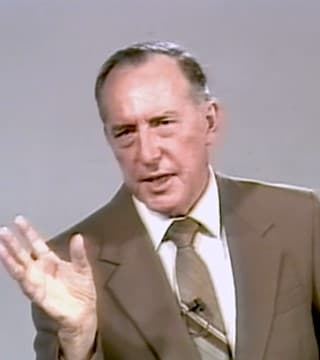Derek Prince - The Satanic Power of Curses (12/03/2020)
Now let’s look at witchcraft as a spiritual power. Now we are talking about something that’s supernatural. It’s more than human ability. It is very important to understand that not all supernatural comes from God. A lot of it comes from Satan. There are, I believe, only two sources of the supernatural available to men: God or Satan. Any supernatural power that does not come from God does come from Satan. As I said before, God’s Kingdom is a kingdom of light. Usually you know where you are at in God’s Kingdom. Satan’s kingdom is a kingdom of darkness: you don’t know what’s manipulating you, what’s controlling you, what’s driving you.
There are, I think, three main branches that we can describe in the English language. In some other languages you might have to use slightly different terminology. They are witchcraft, divination and sorcery, and I’ll try to give you a little picture of each. I think they cover the whole field of the satanic supernatural. Now witchcraft is the power arm. Its product is power and it operates through such things as spells and curses. I think perhaps the most single powerful weapon of witchcraft is curses. It is a very old practice.
If you turn to Numbers, chapter 22, you’ll find that Balaam was what we would call a witch doctor. Balaam was one of the most difficult people to classify, that we still encounter today, because he was open to the supernatural from both sources, from God and from Satan. There are a lot of people like that. And they are the hardest to deal with, because sometimes they are right and sometimes they are wrong. If a person is only open to God, he will always be right; if a person is only open to Satan, it’s wrong. But the people that are really difficult to deal with, and we have them in all congregations, are people who are sometimes open to God and sometimes open to Satan. I tell you, for a pastor to deal with them that requires insight, authority and courage.
Now let’s look at what Balak, king of Moab, said to Balaam, the witch doctor. In Numbers 22:10, Balaam is actually explaining to God the proposition he has had from Balak. Balaam said to God: Balak the son of Zippor, king of Moab, has sent to me, saying: Look, a people has come out of Egypt and they cover the face of the earth. What people was that? Israel, that’s right. Come now, curse them for me. Perhaps I shall be able to overpower them and drive them out. Now this is standard practice in the cultures of the Bible. It was normal for kings or others going to war, not merely to fight them on the natural plane, but to make war on the supernatural plane. So they would get their witch doctor to curse the other people. There is a list of curses pronounced by the Egyptian Pharaohs in the 19th century B.C. and there are 66 nations against which they pronounced curses.
See, what’s the point of cursing them? You bring them to a place where you can defeat them in war. It’s very interesting, when Goliath came against David, he cursed him in the name of his gods. That was not just a display of vulgarity. He really was asserting: "My gods can deal with your God". So in a certain sense, ancient warfare was often not just a conflict between nations but it was viewed as a test of power between the gods of those nations. For instance, when God dealt with Egypt and brought Israel out, the Psalm says, "He judged the gods of Egypt". Not just the natural rulers but the spiritual rulers.
So Balaam was hired as a good curser. That was his profession. Ruth and I visited Bath a few years ago. They had just then excavated a pagan temple. And they discovered that one of the main functions of the priests in that temple was to write curses for people who came They did not trust themselves to write a good enough curse for themselves, so the function of the priest was to write a really horrific curse against the person whom they wanted to see destroyed. Don’t smile at that. You smile and think it is funny, but believe me in a certain sense it works. People would not spend thousands of years in a certain way of doing things if there was not some reality in it.

